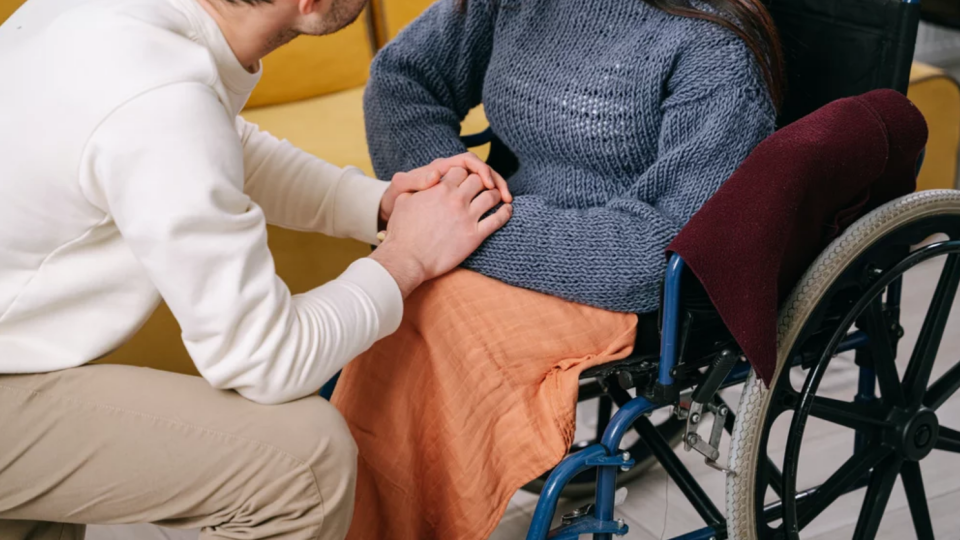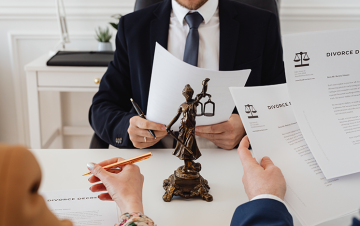Becoming a guardian of a person with a disability is an important step that allows you to take official responsibility for their life, health and property rights. Such a procedure is necessary if a person is unable to make decisions, provide for themselves or exercise their rights due to their health condition. In this article, we will take a closer look at all aspects of guardianship, what documents are needed for guardianship over a disabled person, so that you can understand how to act correctly and avoid mistakes.
Reasons to take out a guardianship
Guardianship may be required in the following cases:
- Physical incapacity: A person has lost the ability to take care of themselves due to a disability or age-related issues.
- Psychological or cognitive disorders: Illnesses that limit the ability to make independent decisions (dementia, mental disorders).
- Legal and financial issues: The absence of a guardian makes it impossible to resolve important issues, from receiving social benefits to signing contracts.
- Social protection: Formalisation of guardianship provides access to state support programmes, including benefits, rehabilitation services and privileges.
Without proper registration, representing the interests of a person with a disability can become difficult or impossible.
Stages of guardianship registration: how to get guardianship over a disabled person
There are several key steps involved in obtaining a guardianship:
- Consultation with a lawyer. A lawyer will help you determine the legal grounds for guardianship and assess what documents will be needed in your situation.
- Collection of documents. The list of documents may vary, but usually includes: the passport of the guardian and the person under guardianship; a medical report on the health status of a person with a disability; certificates of income and living conditions of the guardian; an application for guardianship.
- Submission of the application. The documents are submitted to the guardianship and trusteeship authorities at the place of residence of the person who needs care.
- Checking the living conditions. The guardianship authorities check the living conditions of the guardian to make sure that he or she can provide an adequate level of care.
- Court decision. In some cases, the decision to appoint a guardian is made through a court. This is necessary if there are controversial issues or if the procedure is complicated.
- Obtaining a guardianship document. After approval, the guardian receives an official certificate that gives him or her the right to represent the interests of the ward.
What are the benefits of guardianship?
Registration of a guardianship makes it possible to:
- Legally represent the interests of the ward in government agencies, medical institutions and banks.
- Apply for social benefits, pensions and privileges.
- Protect the property rights of a person with a disability.
- Access rehabilitation programmes and medical care.
- Avoid legal complications in the future.
Important issues regarding guardianship of a person with a disability
Question
Do I need to apply for guardianship if I am already caring for a relative?
Answer
Yes, official guardianship is mandatory. Without it, you will not be able to receive social benefits or legally represent the interests of this person in institutions.
Question
Can a person of retirement age be a guardian?
Answer
Yes, if they have a sufficient level of income, live in appropriate conditions and are able to provide care for the ward.
Question
What should I do if other relatives object to my appointment as a guardian?
Answer
In this case, the issue is resolved in court. A lawyer will help you prepare all the necessary evidence and defend your rights.
Legal assistance from ‘Consultant’
Speed: A lawyer will promptly prepare and submit documents.
Protection of rights: Ensuring legality at all stages of the process.
Individual approach: Solutions adapted to your situation.
Legal assistance: Representation in disputes and court cases.
Experienced attorneys of the legal service ‘Consultant’ will be able to help you in solving the issue of guardianship. Contact us for a free consultation so that we can help you understand your rights and find the best way out of your situation.
Obtaining guardianship in Ukraine over a disabled person with a disability is an important process that requires knowledge of the law and careful preparation of documents. Consulting an experienced lawyer will ensure that all procedures are followed, minimise the risk of rejection and help avoid conflicts in the future.
































